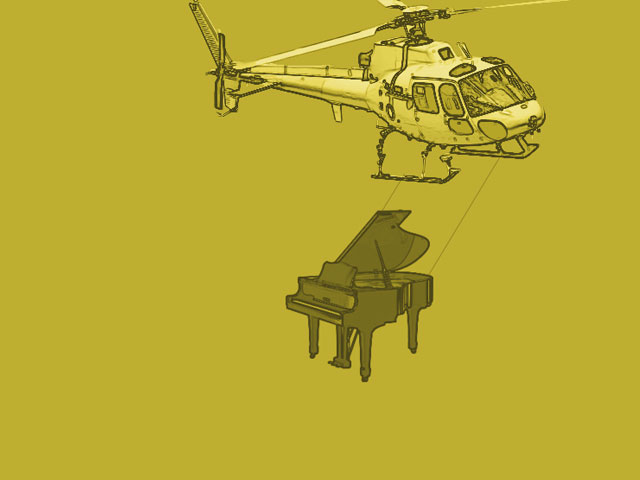- Published May 31, 2013 in Gear Garage
In the nightmare scenario, your beloved axe ends up in pieces. A little common sense will help you avoid that particular outcome.
For the touring musician, very little is more important than arriving in a new city with your instrument in one piece. And, it’s safe to say that no one cares about that as much as you do. It’s up to you to make sure you’re doing everything you can to protect your investment and avoid having to find a contrabass electric half-sized 19-string mandolin in the middle of the night in Wichita.
1 Renter’s insurance is your friend. Get some.
I hate to start right out with the worst case scenario here, but the first thing you need to do is make sure you’re covered if all hell breaks loose. Yes, you’re going to do everything in your power to avoid disaster. But let’s face it, shit happens.
Renter’s insurance is offered by every major insurance company you can think of and, compared to car, health and life insurance, it’s downright cheap. You can get coverage for your most valuable possessions for as low as a couple hundred bucks a year and it’s totally worth it.
Make sure to tell your agent that you’ll be traveling with some of your valuables. He/she might ask for an official appraisal of that vintage Strat you can’t live without. Get them to agree to the replacement cost upfront so you don’t have to haggle with The Man when it comes time to get paid back for your troubles.
2 Think ahead while you’re packing.
If your precious, one-of-a-kind pride & joy is going to end up in the cargo hold of a bus, plane, ship or spacecraft, figure out what the conditions are going to be like and act accordingly. If the wood, brass, plastic and metal that makes up your instrument is sensitive to extreme temperatures, assume there are going to be some and make sure it’s insulated.
Also remember that you’re going to have to put your baby in the hands of someone who cares about it a lot less than you do. A little extra padding goes a long way, especially around the most sensitive areas like the neck of your bass, the valves of your horn or the heads of your drums.
When flying with my bass, I made a habit of slacking the strings to take some of the tension off the neck while in transit. Opinions on this may vary and you have to do what you feel is right. The point is to give it some serious thought before you leave the fate of your instrument to the gods.
3 Feel free to go first class.
I knew a guy once who would buy his cello its own seat on every flight. The flight crew was not amused, but this was a one-of-a-kind instrument and, since he paid full price, there was nothing they could say.
If you have any doubts about getting your gear to the show in one piece--and if you have the money--the world is full of ways to spend extra to remove all the variables.
Professional instrument movers will be happy to have you write them a nice big check and give you the service to match. Look around for good reviews and recommendations. Then sit back and relax as a team of experience, licensed and fully-insured professionals come to collect your Steinway baby-grand, load it in a padded truck and carefully transport it from your studio in Little Rock to the main stage at Lincoln Center as smooth as The King’s personal OBGYN delivering his only heir to the throne.

